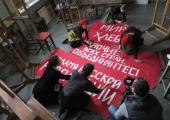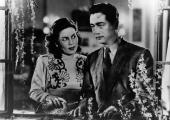Fifty years after the 1968 Soviet invasion that so brutally interrupted it, the Czech New Wave really is a gift that keeps on giving. It still astounds that such a sheer variety of cinema was created in so short a time – really just six or seven years, not even a decade – by such a range of talent. It’s a rich vein of film history, one that has been revealed in recent years in exemplary releases from distributor Second Run; if it left you with any concern, it was when this remarkable source might begin to dry up.
Not for a long time, if their latest is anything to go by, though it’s no less astonishing that Miloš Forman’s debut feature Black Peter (Cerný Petr) is being released on DVD in the UK only now. Forman died just four months ago, and it’s moving to watch his 1964 film, a triumph of humour and improvisation that combined a subtly subversive analysis of society with such “compassionate humanism” in relation to his characters (that last accolade comes from Ken Loach, an avowed disciple of Forman).
The store-detective’s responsibility towards shop-lifters is 'to educate customers in honesty'
You won’t find a better introduction to the context in which Forman was working at the time than the 30-minute interview Life As It Is: Miloš Forman on His Czech Films that comes as the main extra here. Filmed in New York in 2000 by Robert Fischer of German documentary company Fiction Factory, it’s part of a longer 115-minute film that takes Forman’s career through to the cusp of the new millennium (it was apparently only screened in full earlier this year and no doubt deserves to be seen as a whole, while further extracts will surely accompany future home entertainment releases). There’s such a wealth of detail (and some previously unseen footage), ranging from insights into the period in which Forman was becoming a film-maker, through to his working methods, including that distinctive combination of non-professional and trained actors that plays so brilliantly here.
He is especially revealing on what it meant to come of age in the post-Stalin years: a fantastic range of older cinema talent, banned from working in the field, was teaching at Prague’s celebrated FAMU film school, while Khrushchev’s call to give youth an opportunity (in his 1956 speech to the 20th Party Congress) surely worked in Forman’s favour, as well as that of his contemporaries. (The New Wave directors worked in such different directions that rivalry didn’t become a factor, he says; rather they stayed together as a front.)
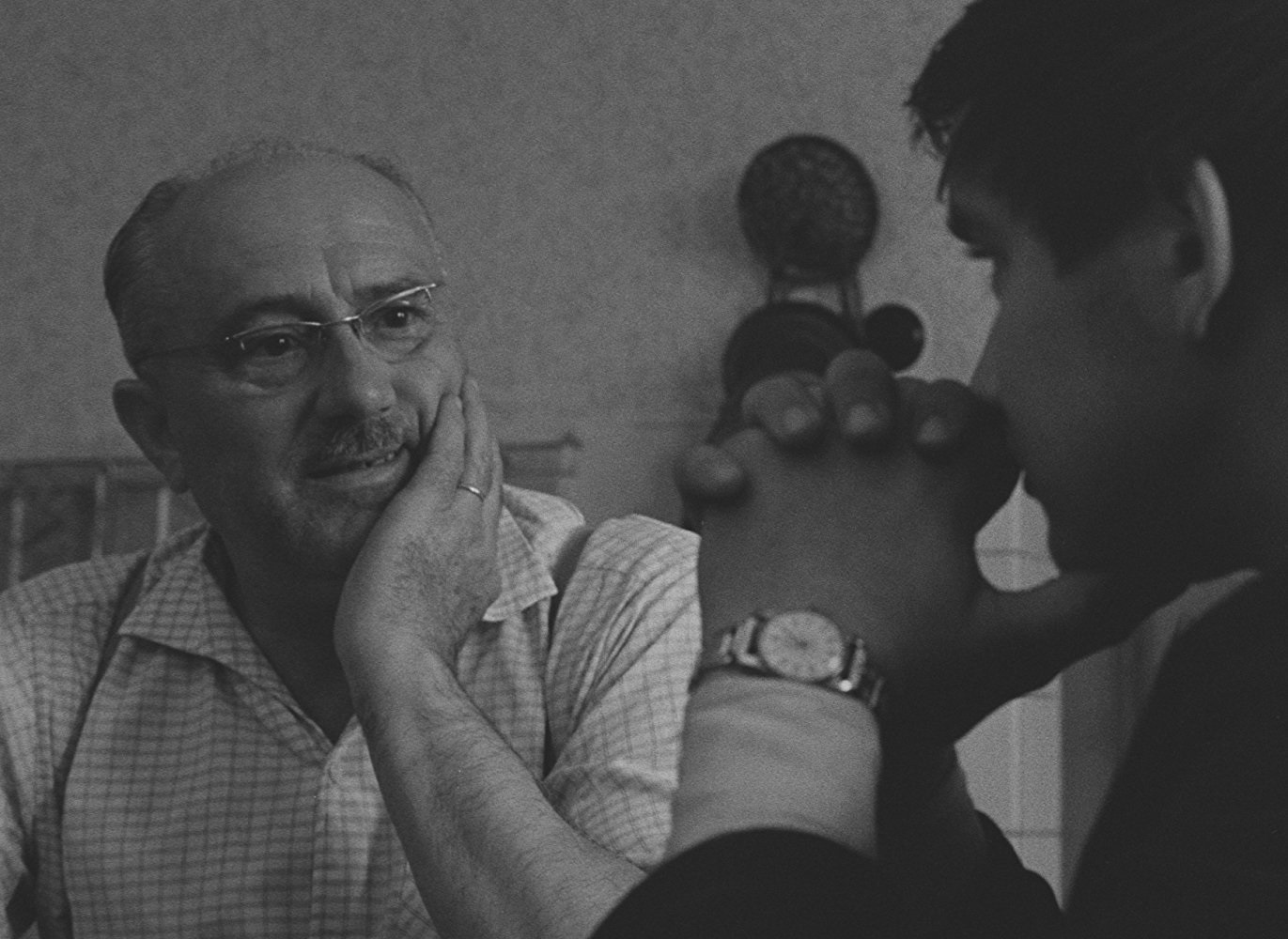 His cinematic inspiration came from both Italian neo-realism (de Sica, especially) and the vérité of the French New Wave, but fuelling both was his reaction against the meaningless propaganda-type films of the previous decade with their Socialist Realist portrayals of “life as it should be”. Open rebellion may have still been impossible in the early Sixties, but comedy, a genre relatively unpoliced by the cultural authorities, allowed for such suggestive irreverence.
His cinematic inspiration came from both Italian neo-realism (de Sica, especially) and the vérité of the French New Wave, but fuelling both was his reaction against the meaningless propaganda-type films of the previous decade with their Socialist Realist portrayals of “life as it should be”. Open rebellion may have still been impossible in the early Sixties, but comedy, a genre relatively unpoliced by the cultural authorities, allowed for such suggestive irreverence.
Black Peter shares much with Forman’s following film, the better-known A Blonde in Love from 1965, particularly in its central dance-floor scene that catches the sheer awkwardness of youth, the agonies of teenage tribulation. But the central character here is male, 16-year-old Peter (Ladislav Jakim), aimlessly (and hopelessly, it has to be said) beginning his first job, as a store-detective. Spying and surveillance are recurring themes, articulating wider issues about this socialist society, that are sweetened by euphemism, the store-detective’s responsibility towards shop-lifters being “to educate customers in honesty”.
But Peter is far more concerned with what's happening away from the store, not least life at home with his parents: the stern Jan Vostrčil is a magnificent presence as his father. (Pictured above left: Vostrčil, a nonpareil non-professional, was in real life a brass-band conductor, persuaded by Forman and his assistant director, Ivan Passer, to take the role only days before filming started; he would work with both again). Then there’s romantic interest Pavla (Pavla Martínková-Novotná), who’s as composed and confident as Peter is awkward and hapless (main picture).
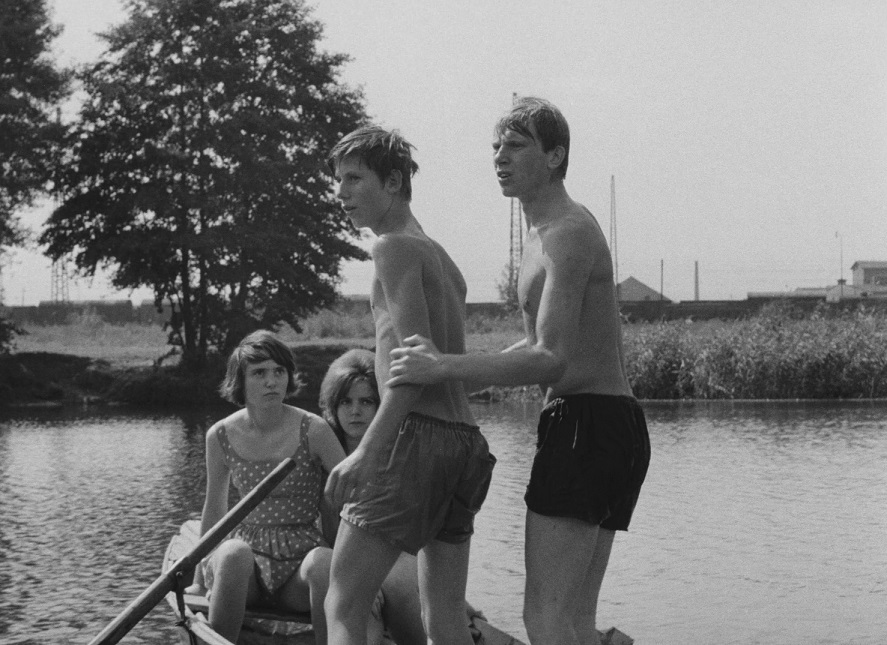 Their tentative courtship may be the main subject of the long dance scene, but so much else is going on as well, not least the antics of the initially assertive, latterly tipsy young brick-layer Čenda (pictured right, right: Vladimír Pucholt, the main professional actor in the film). Pucholt’s hilarious exchange with Peter on the correct intonation for pronouncing the Czech word for “hello” is a show-stealer, but the more serious final scene, which he plays alongside Jakim and Vostrčil, is equally striking.
Their tentative courtship may be the main subject of the long dance scene, but so much else is going on as well, not least the antics of the initially assertive, latterly tipsy young brick-layer Čenda (pictured right, right: Vladimír Pucholt, the main professional actor in the film). Pucholt’s hilarious exchange with Peter on the correct intonation for pronouncing the Czech word for “hello” is a show-stealer, but the more serious final scene, which he plays alongside Jakim and Vostrčil, is equally striking.
The film is presented from a brand new 4K restoration which strived to come as close as possible to how Czech viewers would have seen the film at the time. As close to “guerrilla filmmaking” as the communist system could have allowed, Black Peter was made on a minimal budget – Forman was even shooting it in tandem with another early work, the 50-minute brass band story If There Were No Music – but that didn’t stop it taking the main prize at the 1964 Locarno festival (over competition from new films by Godard and Antonioni, no less).
This release includes a new 15-minute interview with actress Pavla Martínková, filmed this year in the same stadium in the small town of Kolin where the dance scene was shot. Film historian Michael Brooke’s audio commentary is rapid and irrepressible, its enthusiasm as infectious as its discoveries are fascinating. Sheer delight.
Overleaf: watch the new trailer for Black Peter


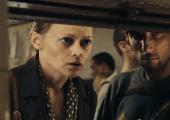
 It’s an experience from which you may well want to flinch, but its cumulative power makes A Gentle Creature Loznitsa’s most substantial achievement to date, certainly in the scale of his vision. Whether the accompanying reduction in subtlety counts as a loss too far is another matter, as is whether this is a sheer too-wilful darkness (that distinctive Russian concept of chernukha) rather than anything more considered. More perversely, does the film’s total absorption in its strongly defined stylistics, its “performance” manner, even somehow qualify any immediate “message”?
It’s an experience from which you may well want to flinch, but its cumulative power makes A Gentle Creature Loznitsa’s most substantial achievement to date, certainly in the scale of his vision. Whether the accompanying reduction in subtlety counts as a loss too far is another matter, as is whether this is a sheer too-wilful darkness (that distinctive Russian concept of chernukha) rather than anything more considered. More perversely, does the film’s total absorption in its strongly defined stylistics, its “performance” manner, even somehow qualify any immediate “message”?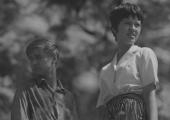
 His cinematic inspiration came from both Italian neo-realism (de Sica, especially) and the vérité of the French New Wave, but fuelling both was his reaction against the meaningless propaganda-type films of the previous decade with their Socialist Realist portrayals of “life as it should be”. Open rebellion may have still been impossible in the early Sixties, but comedy, a genre relatively unpoliced by the cultural authorities, allowed for such suggestive irreverence.
His cinematic inspiration came from both Italian neo-realism (de Sica, especially) and the vérité of the French New Wave, but fuelling both was his reaction against the meaningless propaganda-type films of the previous decade with their Socialist Realist portrayals of “life as it should be”. Open rebellion may have still been impossible in the early Sixties, but comedy, a genre relatively unpoliced by the cultural authorities, allowed for such suggestive irreverence. Their tentative courtship may be the main subject of the long dance scene, but so much else is going on as well, not least the antics of the initially assertive, latterly tipsy young brick-layer Čenda (pictured right, right: Vladimír Pucholt, the main professional actor in the film). Pucholt’s hilarious exchange with Peter on the correct intonation for pronouncing the Czech word for “hello” is a show-stealer, but the more serious final scene, which he plays alongside Jakim and Vostrčil, is equally striking.
Their tentative courtship may be the main subject of the long dance scene, but so much else is going on as well, not least the antics of the initially assertive, latterly tipsy young brick-layer Čenda (pictured right, right: Vladimír Pucholt, the main professional actor in the film). Pucholt’s hilarious exchange with Peter on the correct intonation for pronouncing the Czech word for “hello” is a show-stealer, but the more serious final scene, which he plays alongside Jakim and Vostrčil, is equally striking.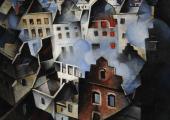

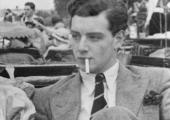
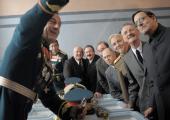
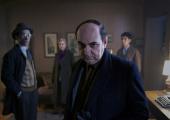
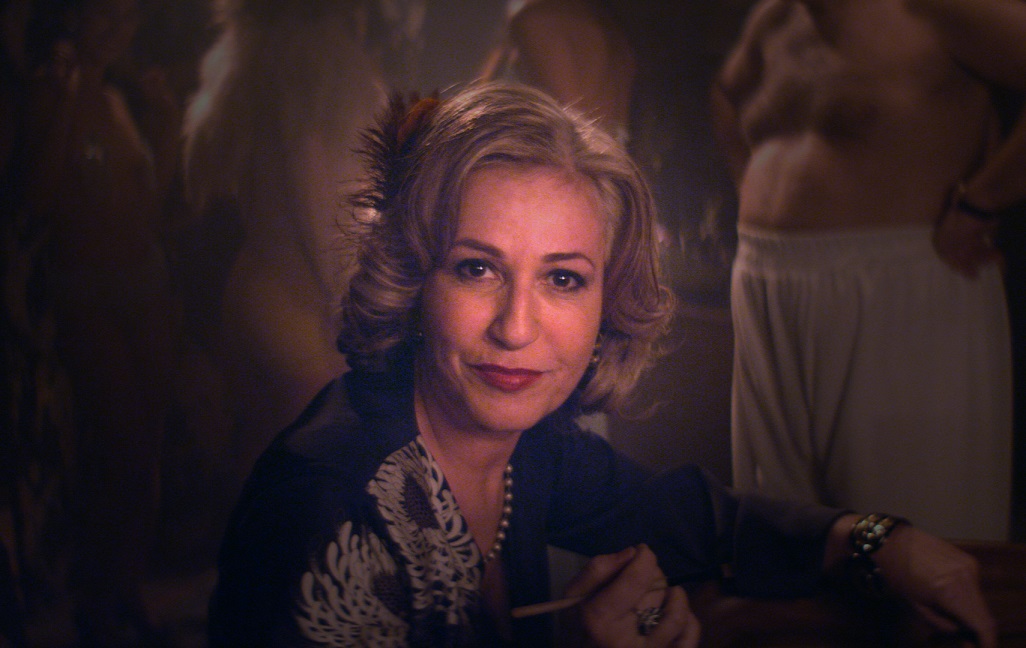 In a nicely satirical scene, Neruda finds that his connections within the old Chilean aristocracy (which still really runs the country) are of no avail, while his attempt to flee abroad is halted at the border. At which point the film's “wild hunt” sets in. With the poet on the run, his pursuer becomes
In a nicely satirical scene, Neruda finds that his connections within the old Chilean aristocracy (which still really runs the country) are of no avail, while his attempt to flee abroad is halted at the border. At which point the film's “wild hunt” sets in. With the poet on the run, his pursuer becomes 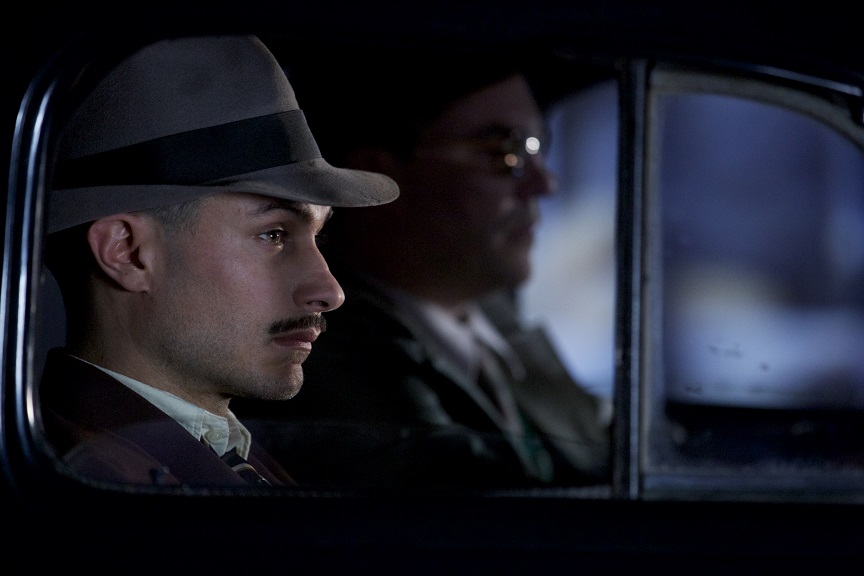 There is rich comedy in the process, as at each stage the hapless Peluchonneau arrives too late, or is defeated by disguises (there's a very funny scene set in a transvestite brothel). His interception of Neruda’s first wife Maria, and attempts to involve her in the process, are brought to a hilariously bathetic conclusion, while his encounter with Delia, no longer following her husband in his escape, provides one of the film's most telling scenes.
There is rich comedy in the process, as at each stage the hapless Peluchonneau arrives too late, or is defeated by disguises (there's a very funny scene set in a transvestite brothel). His interception of Neruda’s first wife Maria, and attempts to involve her in the process, are brought to a hilariously bathetic conclusion, while his encounter with Delia, no longer following her husband in his escape, provides one of the film's most telling scenes.